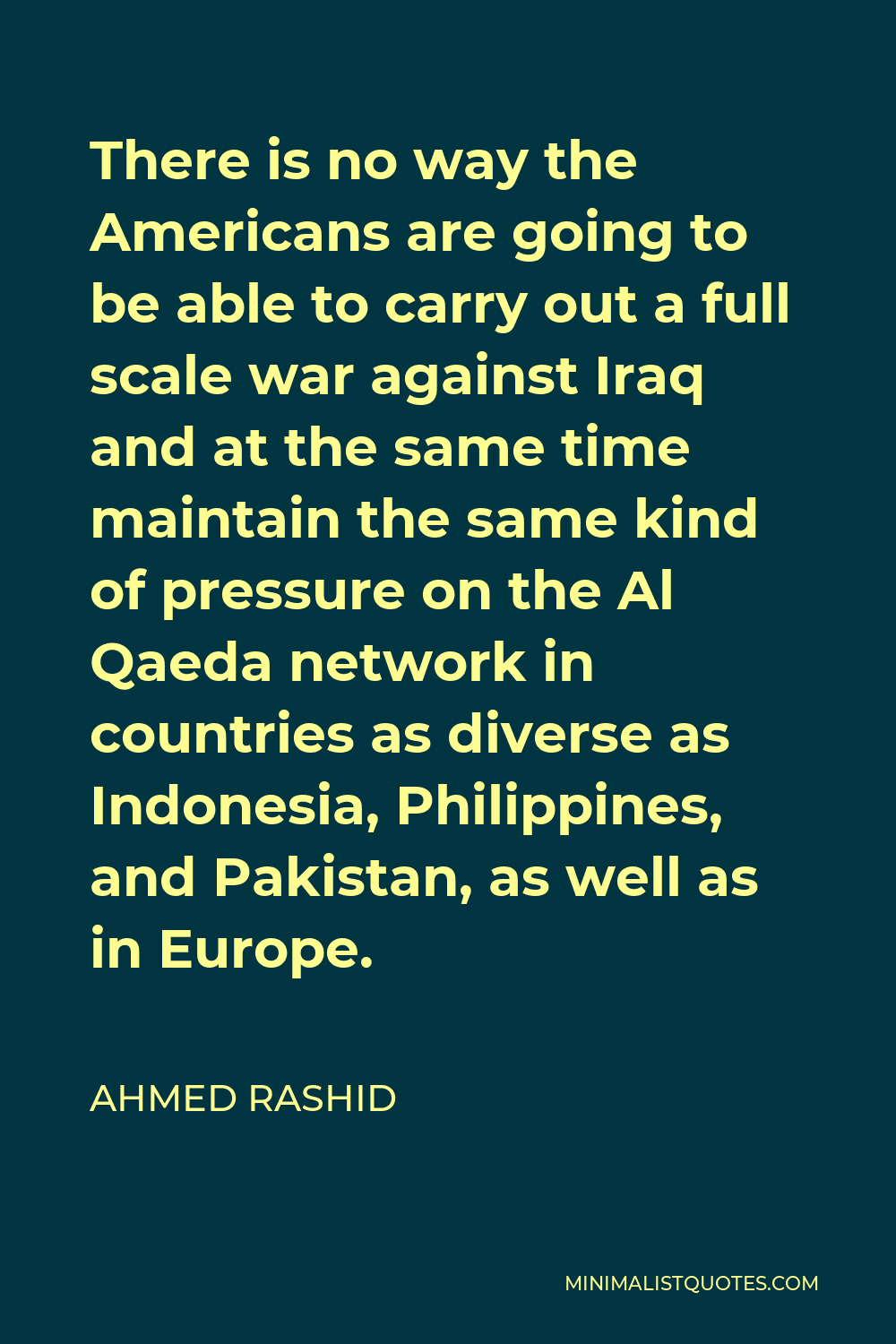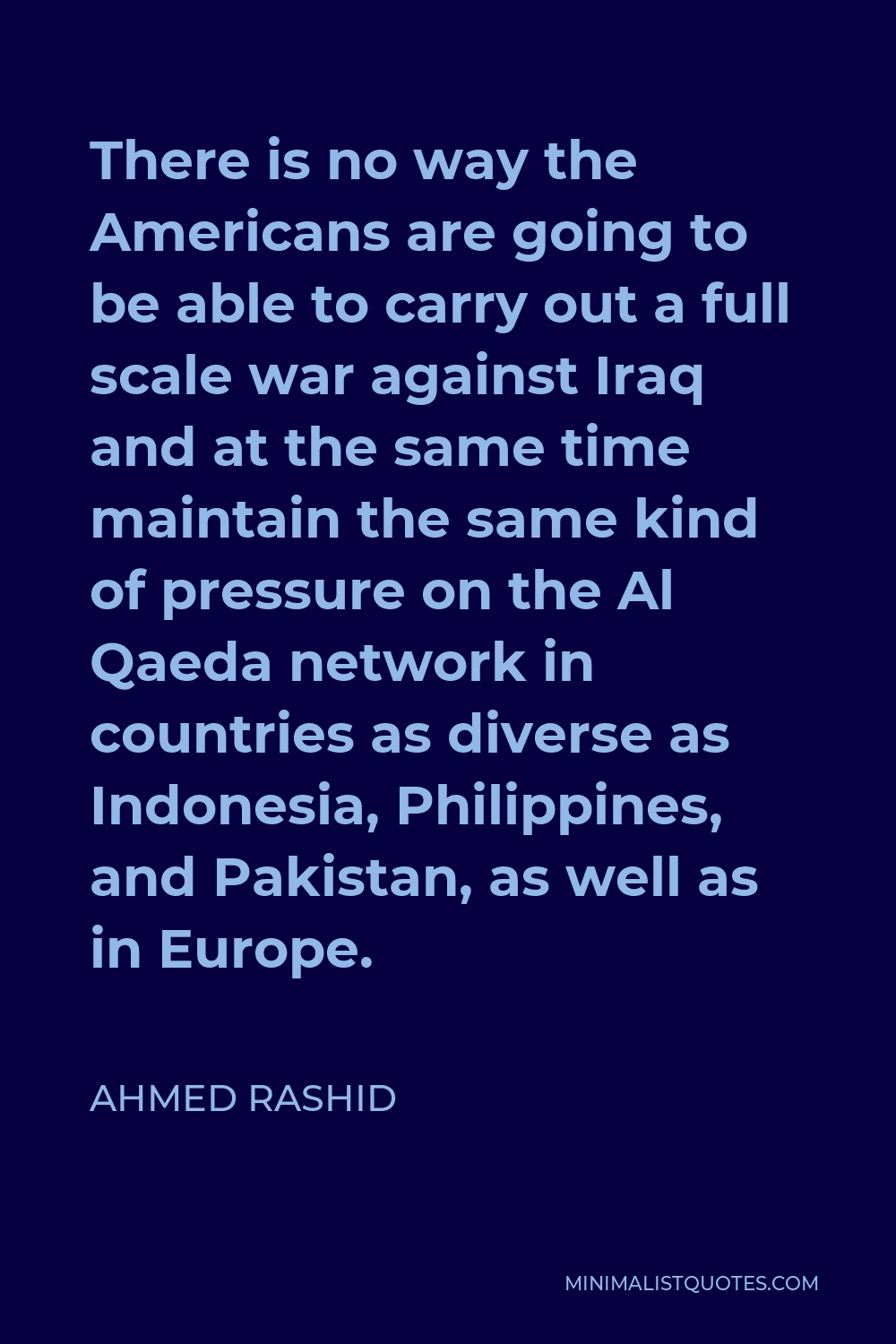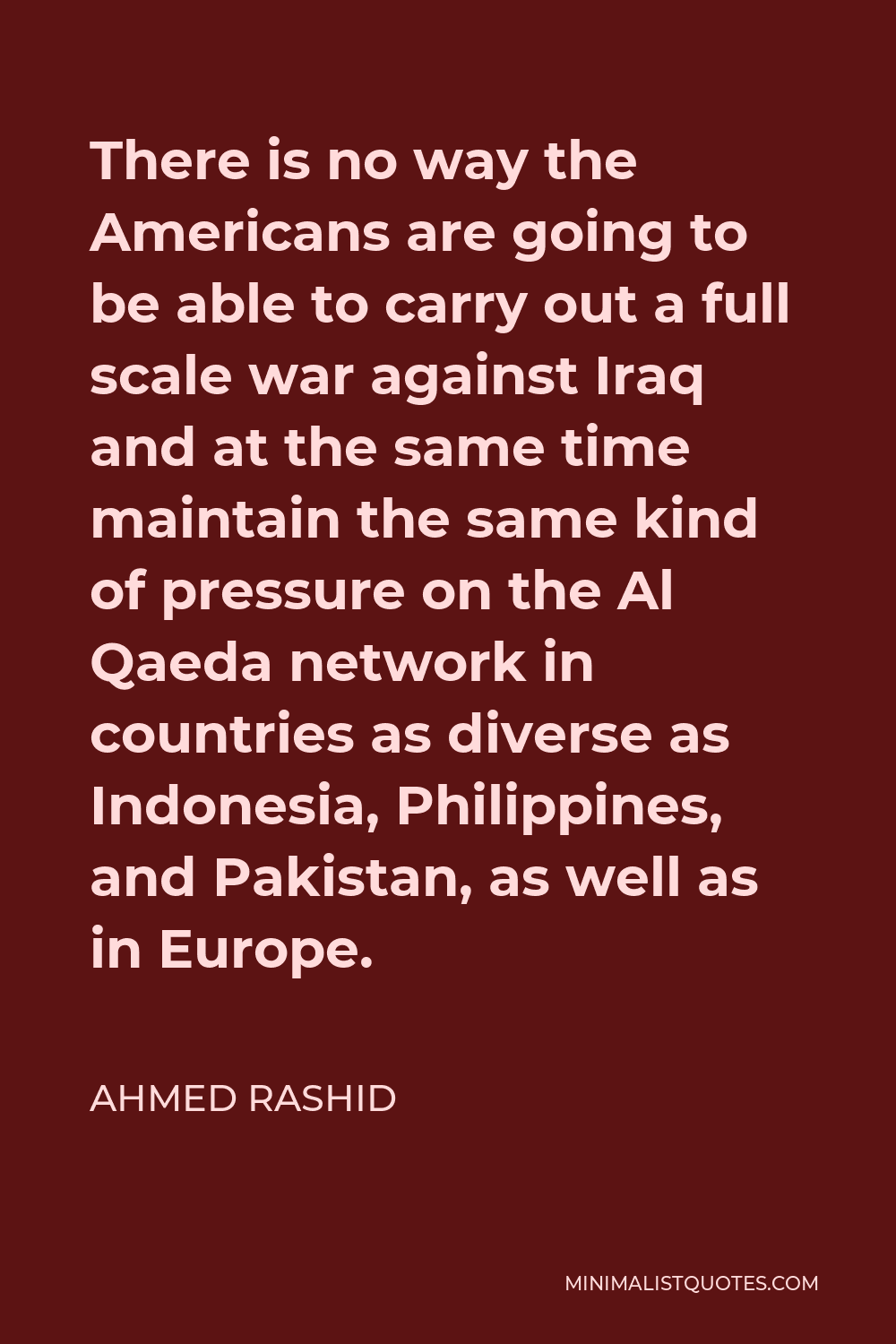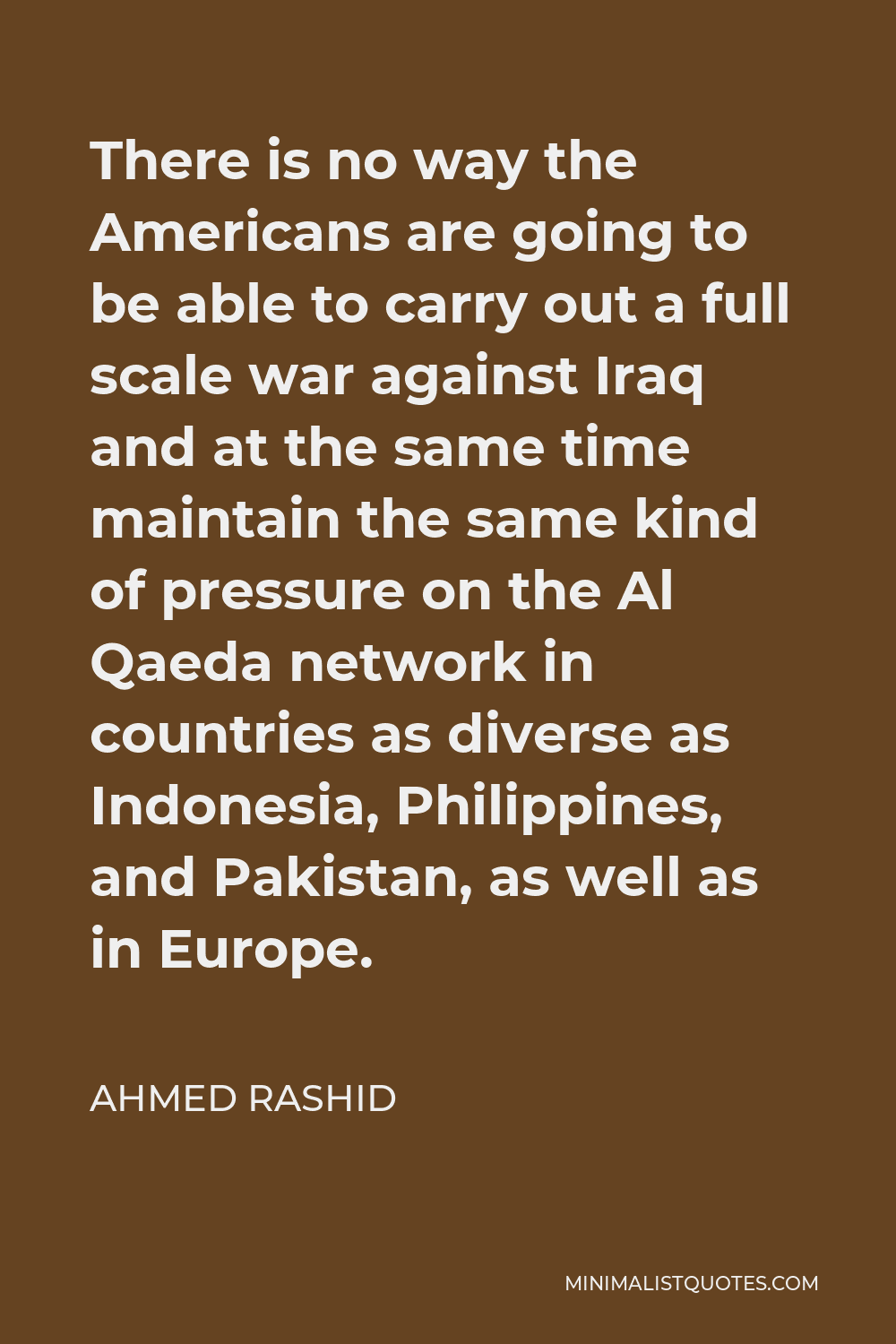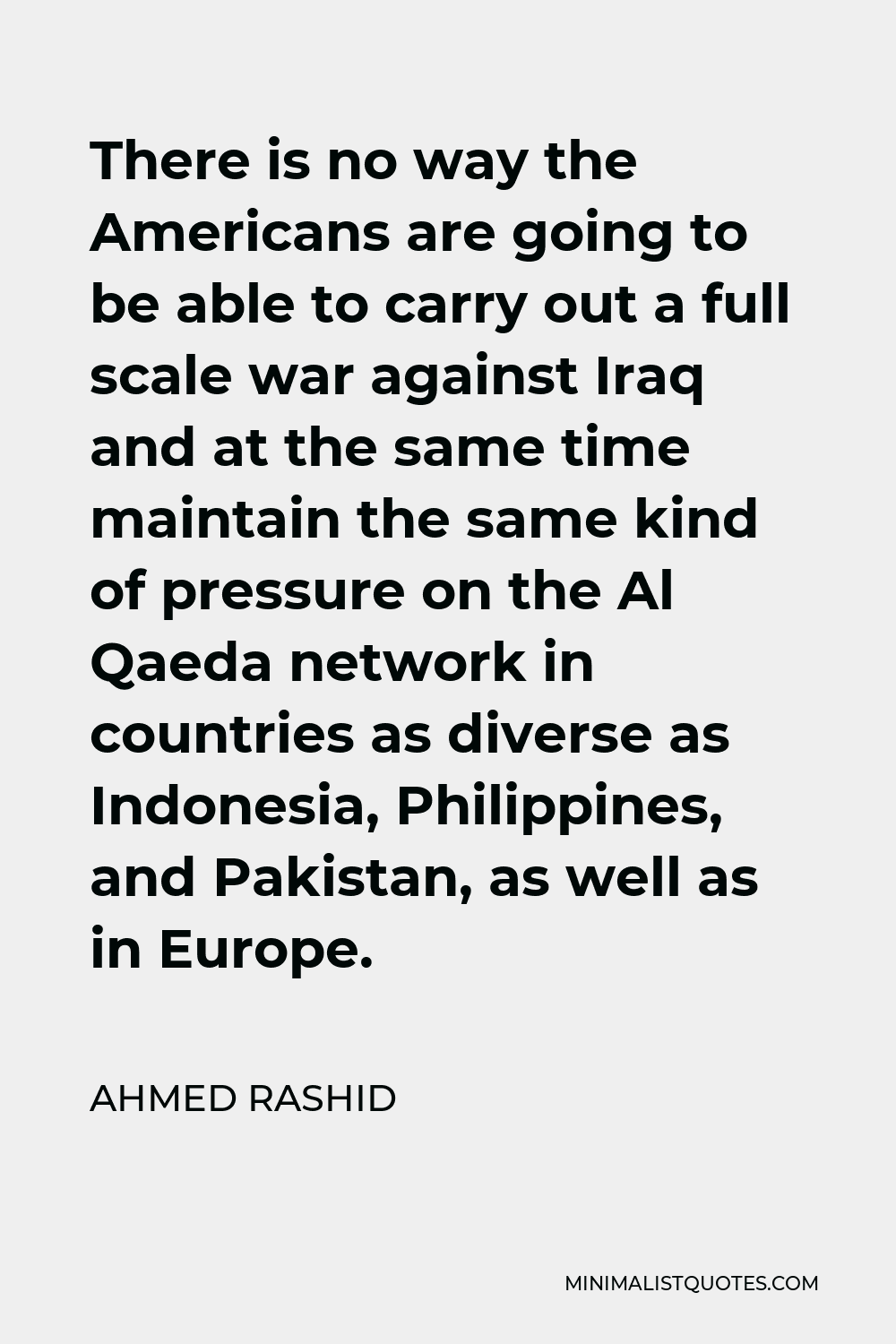There is no way the Americans are going to be able to carry out a full scale war against Iraq and at the same time maintain the same kind of pressure on the Al Qaeda network in countries as diverse as Indonesia, Philippines, and Pakistan, as well as in Europe.
AHMED RASHIDThere is no way the Americans are going to be able to carry out a full scale war against Iraq and at the same time maintain the same kind of pressure on the Al Qaeda network in countries as diverse as Indonesia, Philippines, and Pakistan, as well as in Europe.
More Ahmed Rashid Quotes
-





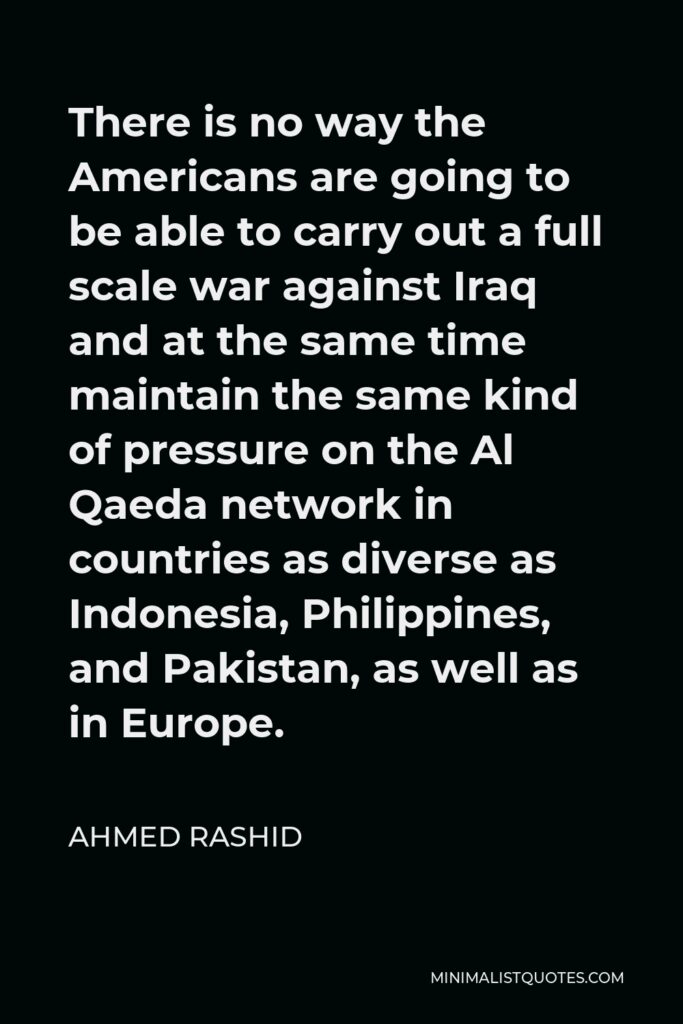

-





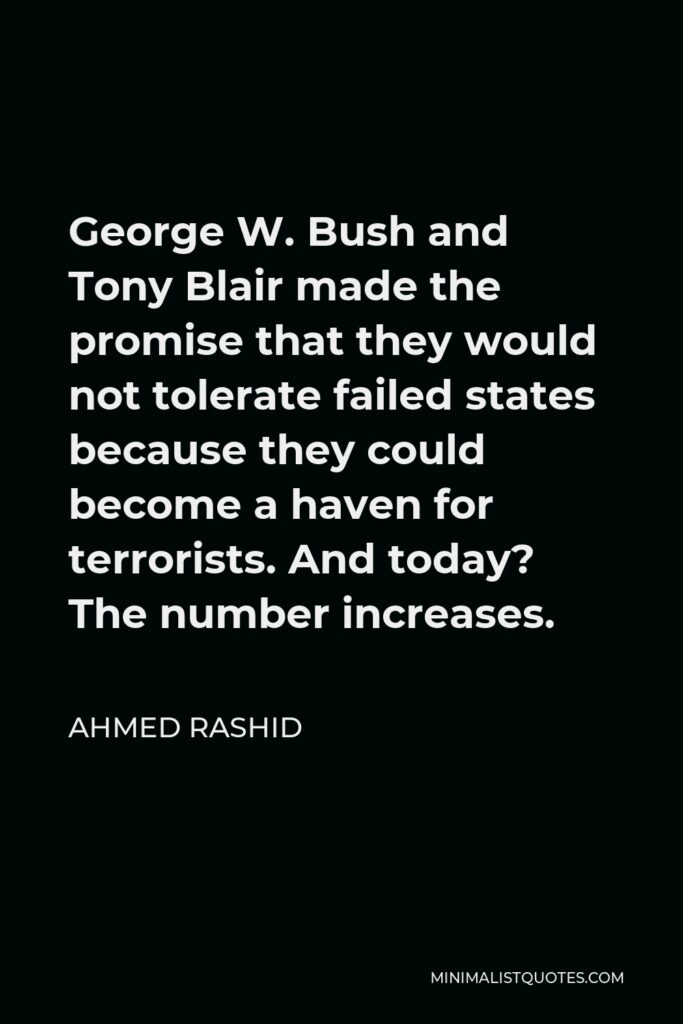

George W. Bush and Tony Blair made the promise that they would not tolerate failed states because they could become a haven for terrorists. And today? The number increases.
AHMED RASHID -





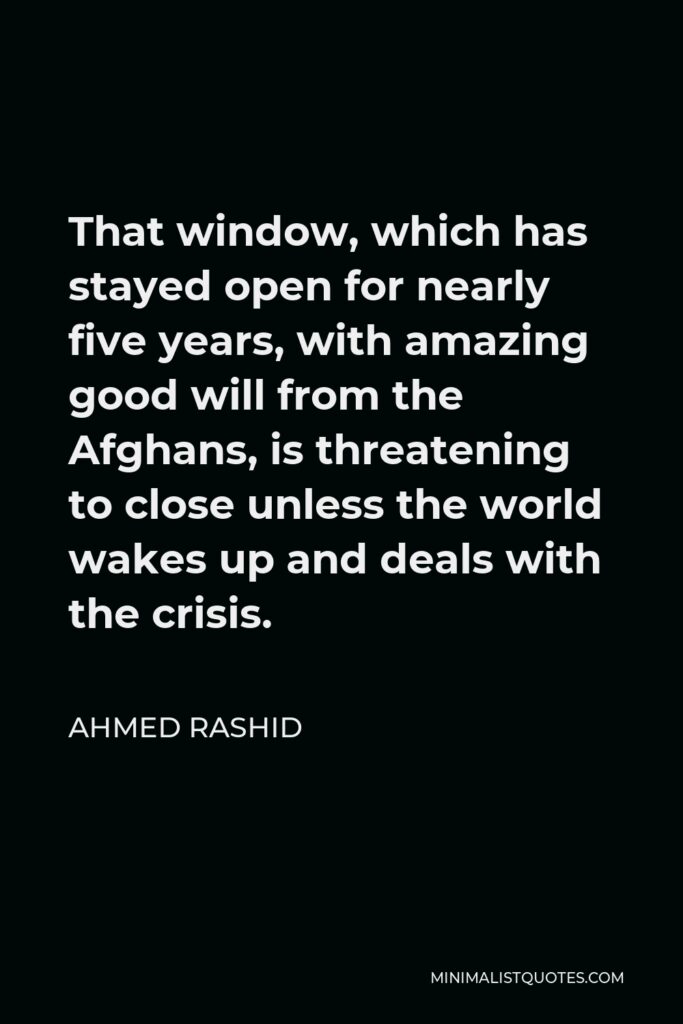

That window, which has stayed open for nearly five years, with amazing good will from the Afghans, is threatening to close unless the world wakes up and deals with the crisis.
AHMED RASHID -





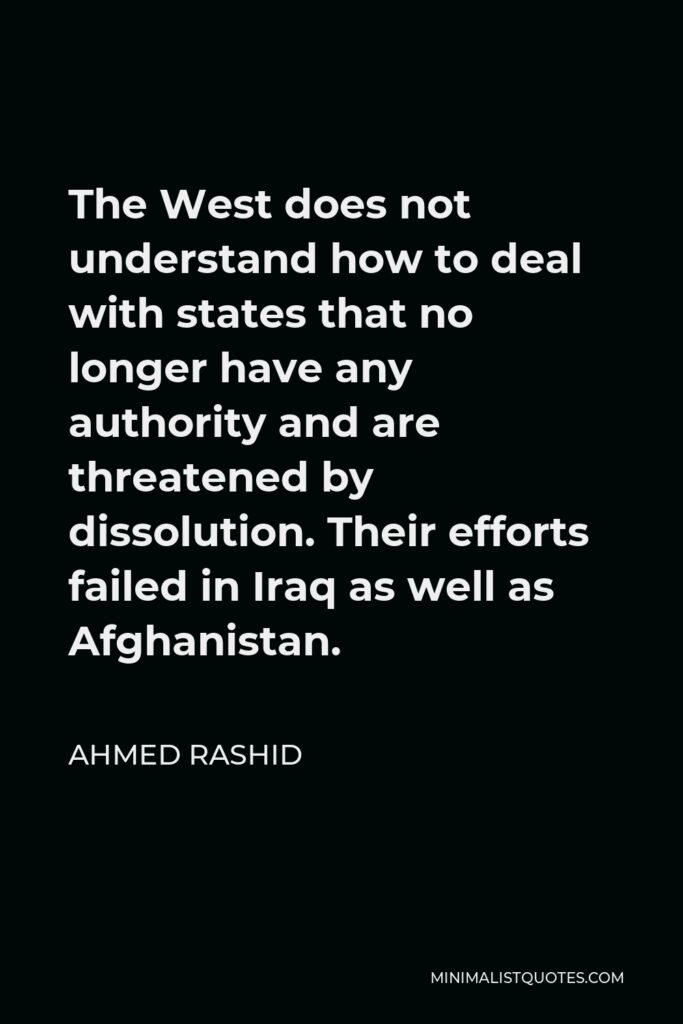

The West does not understand how to deal with states that no longer have any authority and are threatened by dissolution. Their efforts failed in Iraq as well as Afghanistan.
AHMED RASHID -





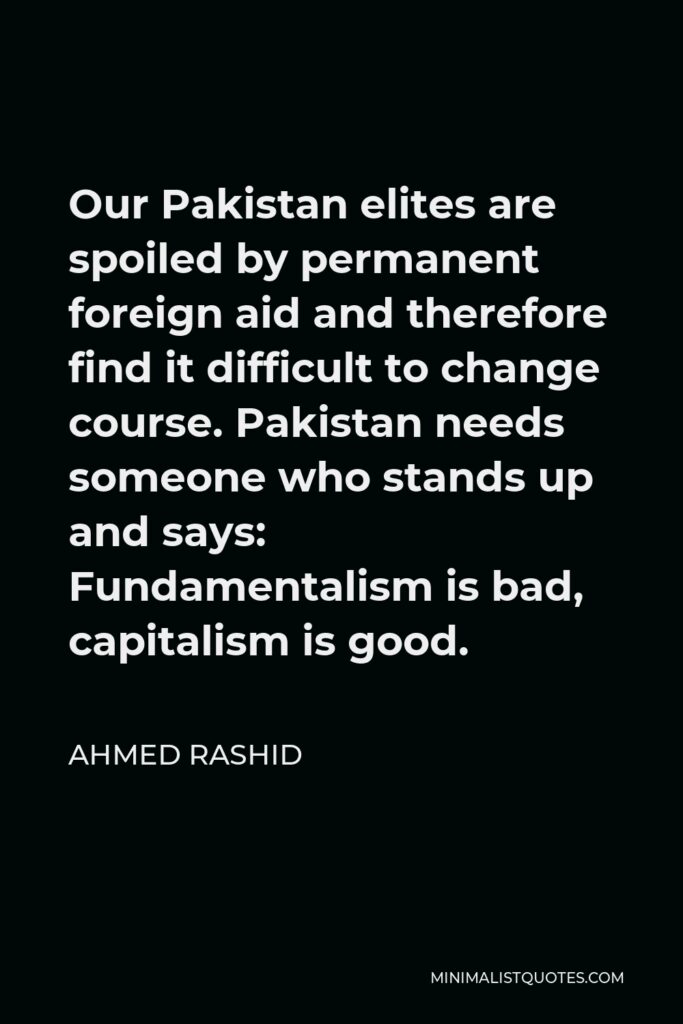

Our Pakistan elites are spoiled by permanent foreign aid and therefore find it difficult to change course. Pakistan needs someone who stands up and says: Fundamentalism is bad, capitalism is good.
AHMED RASHID -





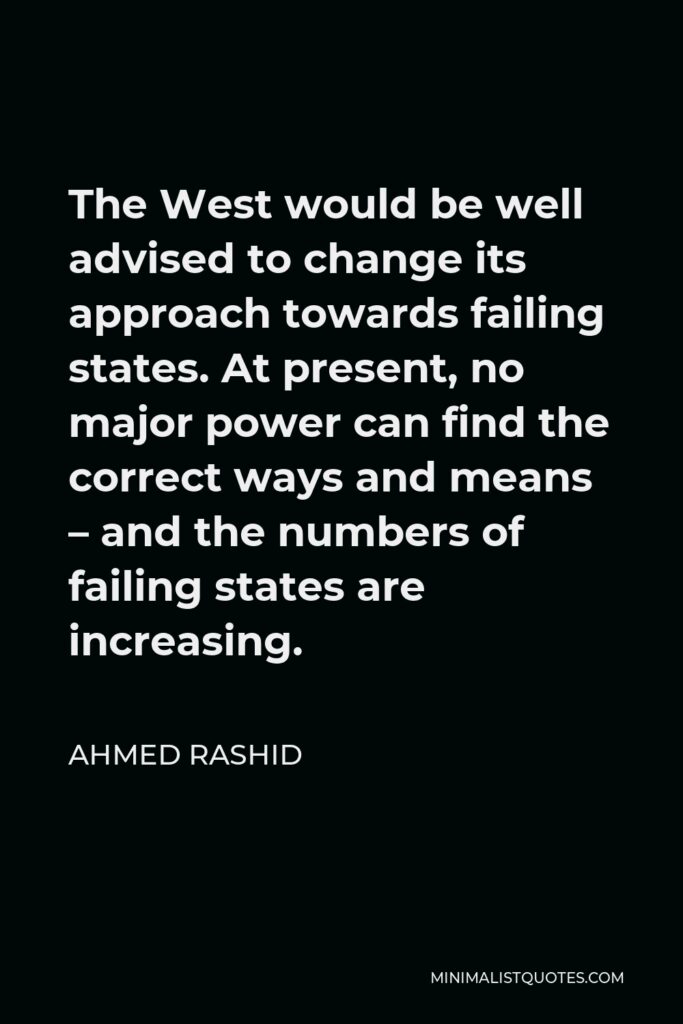

The West would be well advised to change its approach towards failing states. At present, no major power can find the correct ways and means – and the numbers of failing states are increasing.
AHMED RASHID -





![Ahmed Rashid Quote - [Mullah Omar] gave himself this religious title. So it was something that all those people there who swore an oath of loyalty to him as a religious leader could not easily get rid of.](https://minimalistquotes.com/wp-content/uploads/2022/07/mullah-omar-gave-himself-this-religious-title-so-i-683x1024.jpg)

[Mullah Omar] gave himself this religious title. So it was something that all those people there who swore an oath of loyalty to him as a religious leader could not easily get rid of.
AHMED RASHID -





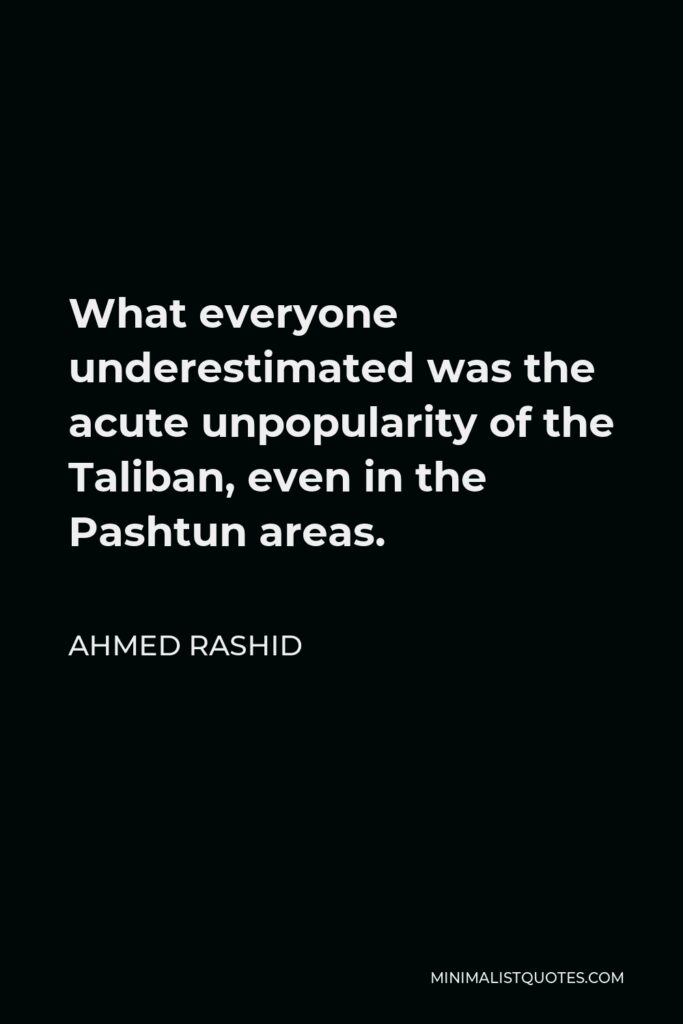

What everyone underestimated was the acute unpopularity of the Taliban, even in the Pashtun areas.
AHMED RASHID -





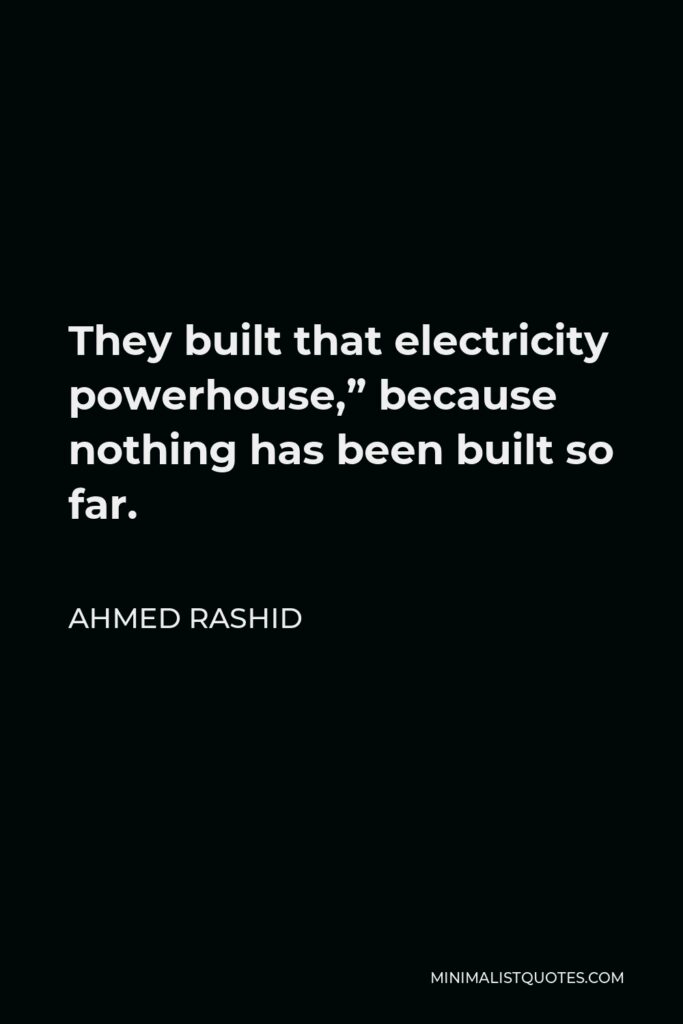

They built that electricity powerhouse,” because nothing has been built so far.
AHMED RASHID -





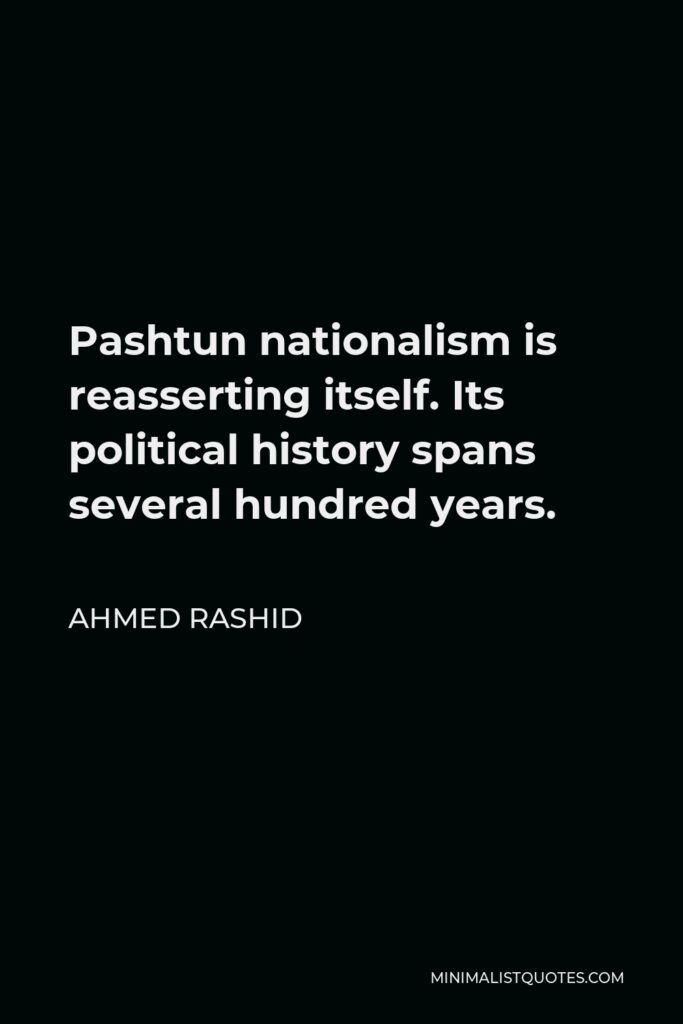

Pashtun nationalism is reasserting itself. Its political history spans several hundred years.
AHMED RASHID -





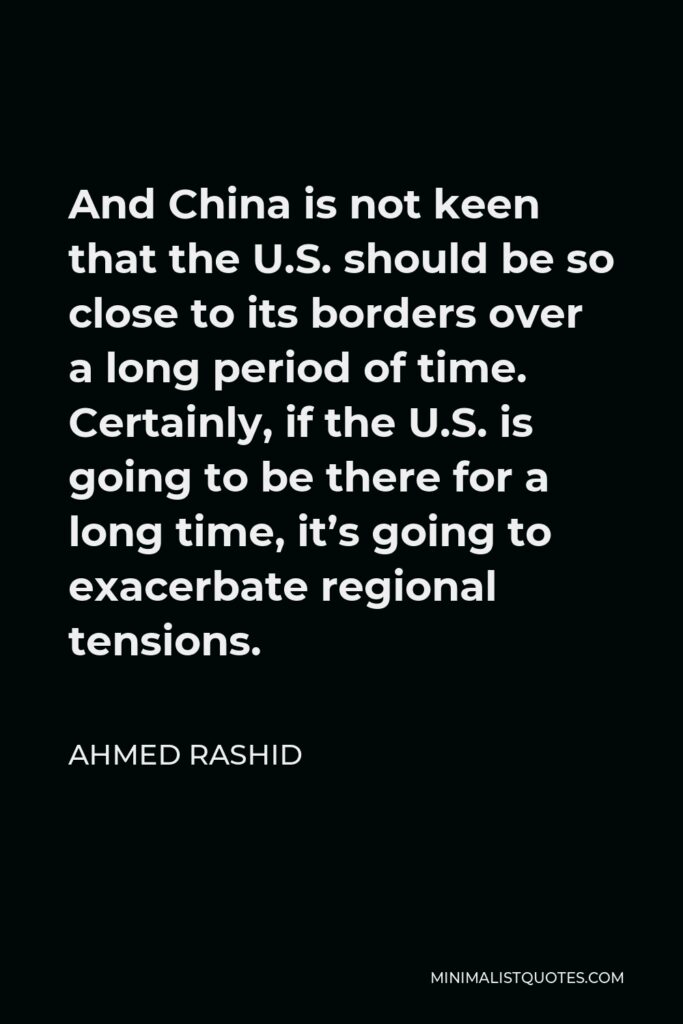

And China is not keen that the U.S. should be so close to its borders over a long period of time. Certainly, if the U.S. is going to be there for a long time, it’s going to exacerbate regional tensions.
AHMED RASHID -





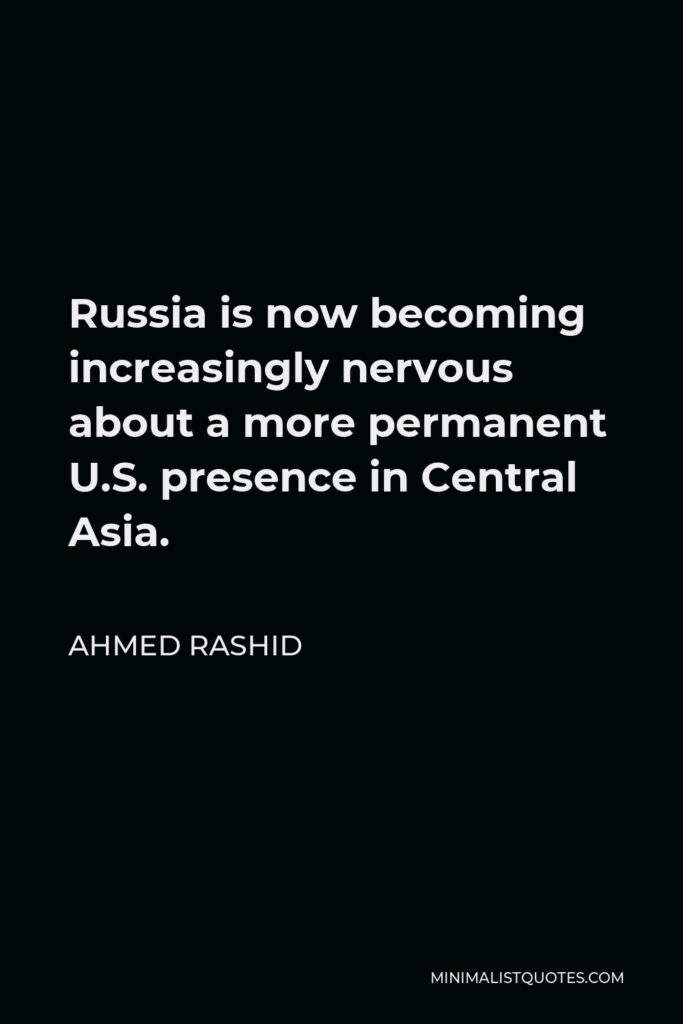

Russia is now becoming increasingly nervous about a more permanent U.S. presence in Central Asia.
AHMED RASHID -





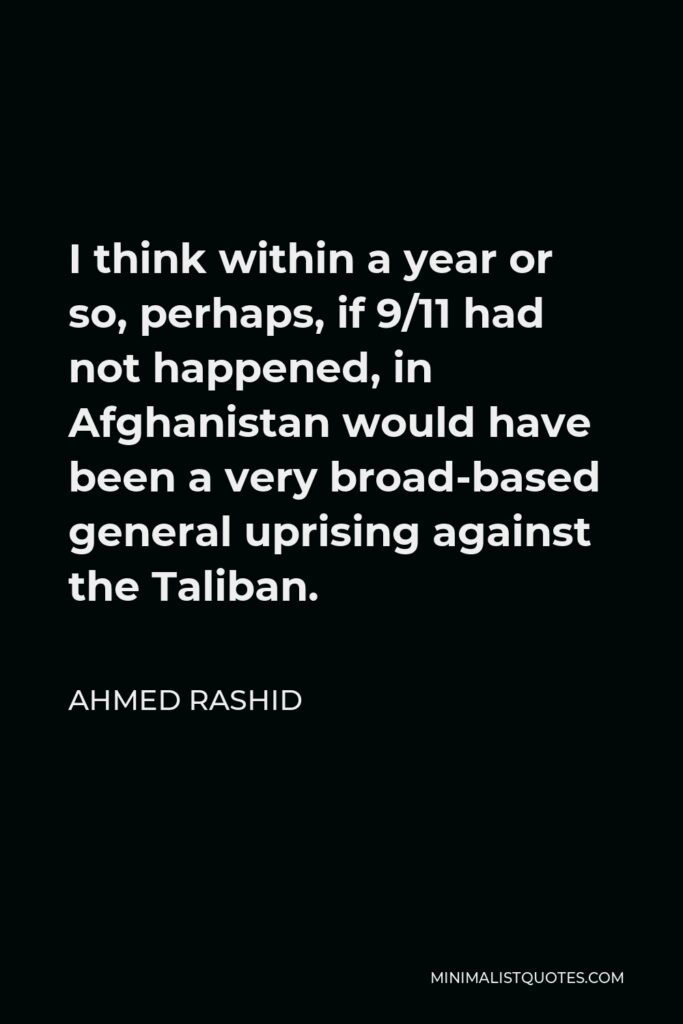

I think within a year or so, perhaps, if 9/11 had not happened, in Afghanistan would have been a very broad-based general uprising against the Taliban.
AHMED RASHID -





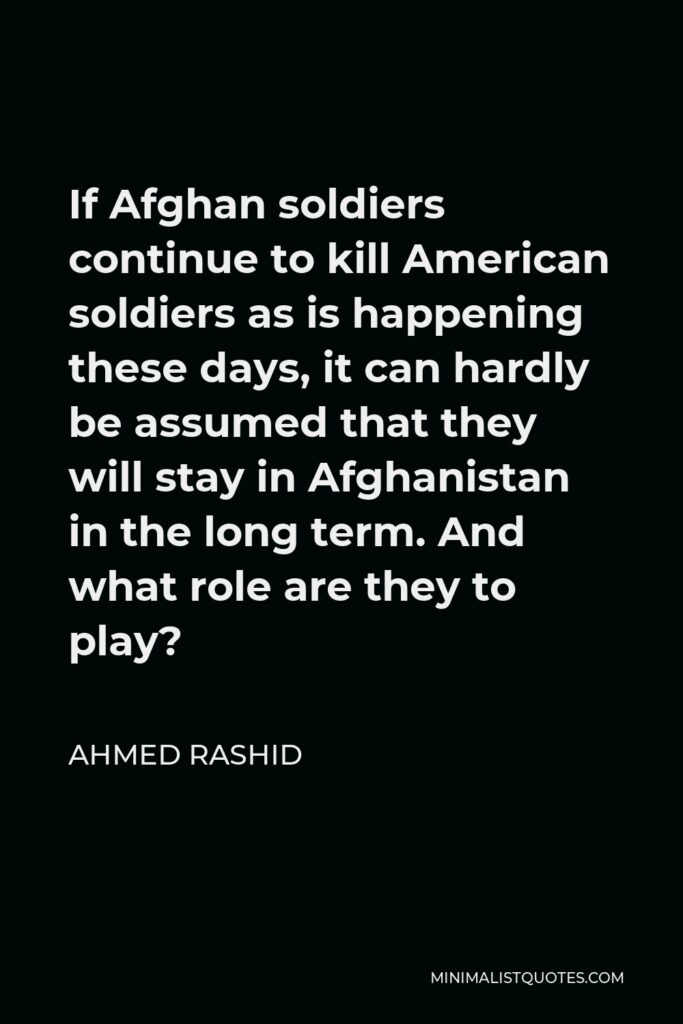

If Afghan soldiers continue to kill American soldiers as is happening these days, it can hardly be assumed that they will stay in Afghanistan in the long term. And what role are they to play?
AHMED RASHID -





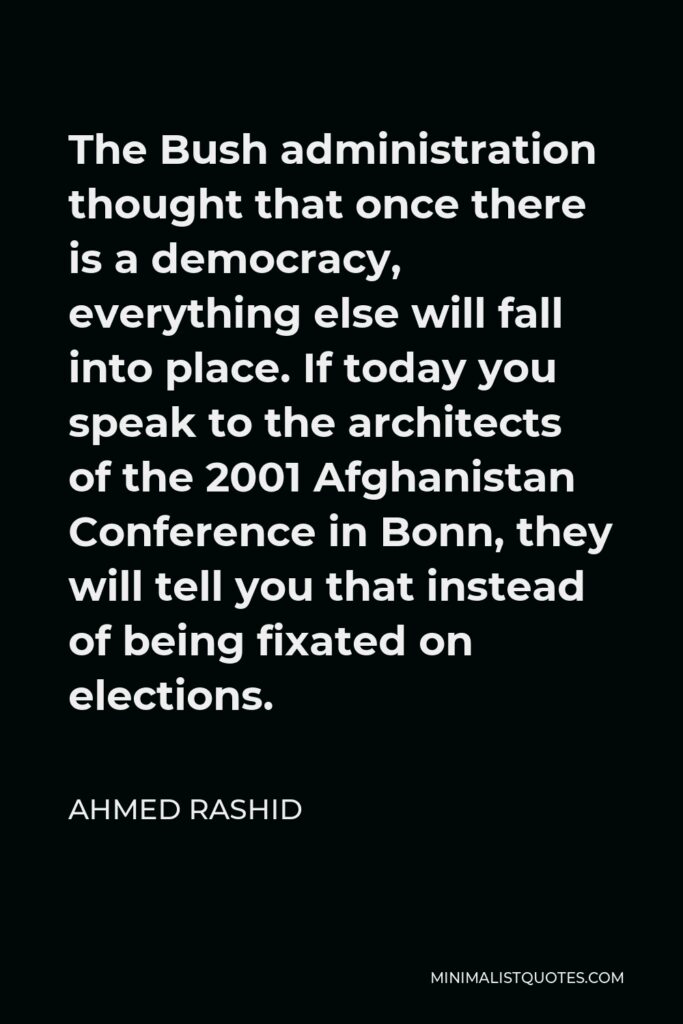

The Bush administration thought that once there is a democracy, everything else will fall into place. If today you speak to the architects of the 2001 Afghanistan Conference in Bonn, they will tell you that instead of being fixated on elections.
AHMED RASHID -





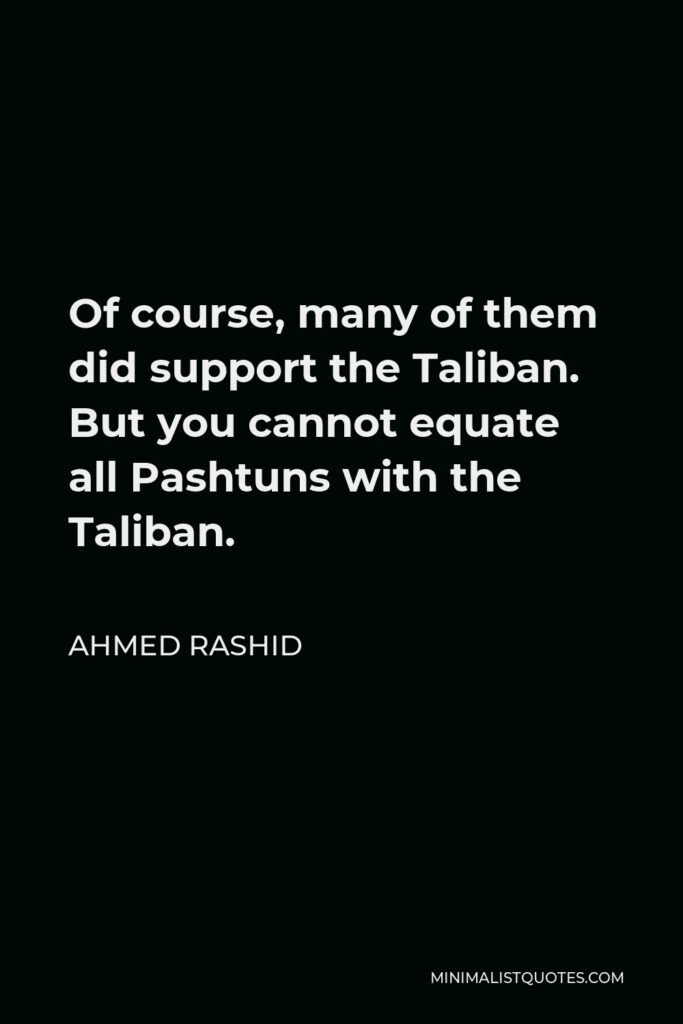

Of course, many of them did support the Taliban. But you cannot equate all Pashtuns with the Taliban.
AHMED RASHID

